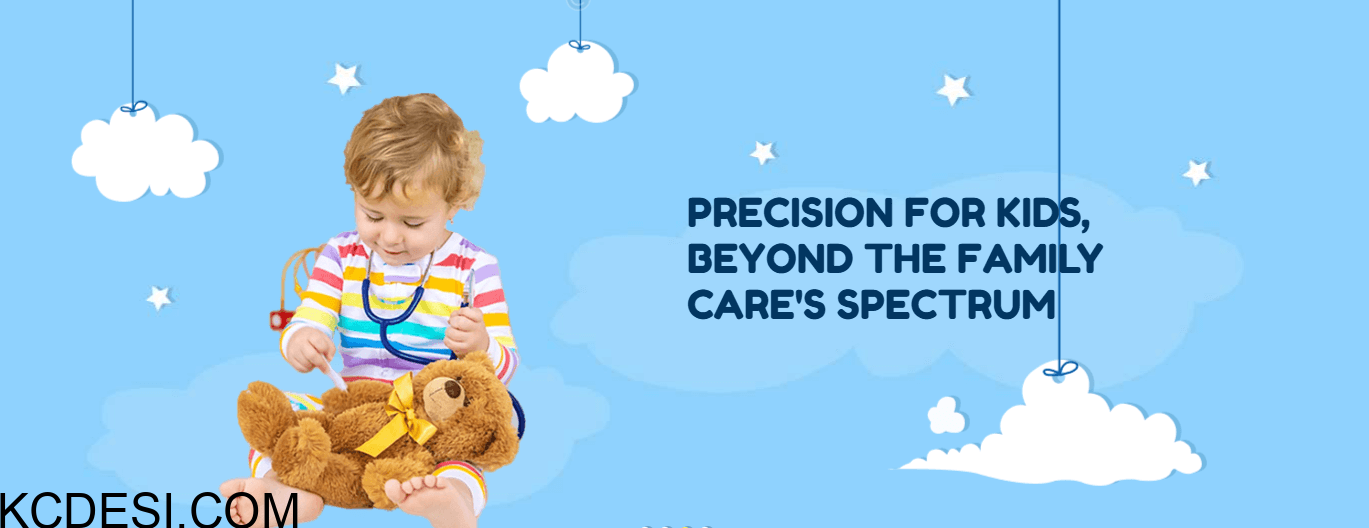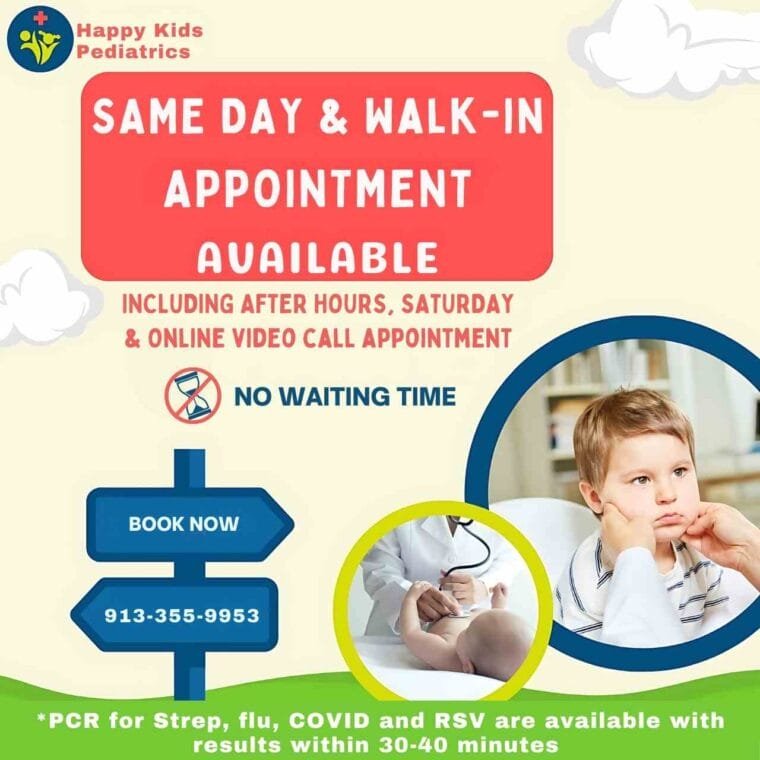Vaccines at Happy Kids Pediatrics
As children grow, parents face many decisions about their health and well-being. One of those decisions involves vaccines. Childhood vaccines are designed to protect against illnesses that can spread easily in schools and communities, some of which have caused serious complications in the past. Today, many families choose vaccination to help reduce the chances of their child getting sick and to support overall community health.
Like any medical decision, vaccines come with both benefits and considerations. They are carefully studied and widely recommended by health organizations, however parents may still have questions about safety, timing, and the number of vaccines their child needs. Taking time to understand how vaccines work and the illnesses they protect against can help families feel more confident in making the choice that is right for them.
At Happy Kids Pediatrics, we are proud to provide vaccinations for children. However, we respect parents’ decisions and are here to provide support and education on such a nuanced topic.
It is easy to book an appointment at https://happykidspeds.com
Childhood Vaccines: The Pros and Cons
Receiving vaccines as a child provides strong protection against serious diseases like measles, polio, whooping cough and meningitis. Beyond keeping kids healthy, vaccines also protect the community by reducing outbreaks in schools and neighborhoods and shielding vulnerable groups such as the immunocompromised, infants and older adults. They are tested, monitored for safety and usually only cause mild, short term side effects like a sore arm or low-grade fever. Vaccines are also required for school entry in Kansas, so they are part of a child’s health and education journey. Plus, they save families money by preventing costly illnesses and hospital visits, as many vaccines are free or of low cost.
On the other hand, some parents have concerns regarding the number of vaccines their child will receive, which can feel overwhelming and stressful. Vaccines can cause mild side effects and though rare, severe allergic reactions are possible. Families also receive misinformation online which can result in hesitancy. However, medical experts agree the benefits far outweigh the risks — protecting children for the long term while keeping our community safe and healthy.
Vaccines Offered at Happy Kids Pediatrics
· Hepatitis B (Hep B) – Focuses on prevention of hepatitis B virus infection and its sequalae such as fulminant hepatitis, liver failure and liver cancer. The younger the child the more severe is the illness. For this reason, the first dose is recommended at birth.
· Rotavirus (RV) – Protects against severe diarrhea caused by rotavirus. The diarrhea typically results in rapid and severe dehydration which can affect kidneys and other organs.
· Diphtheria, Tetanus, and Pertussis (DTaP/TdaP) – Protects against three serious bacterial illnesses. Diphtheria can cause respiratory obstruction, myocarditis, heart block, paralysis and weakness. Tetanus can spasm and lock the respiratory muscles and all other muscles. Whooping cough can be fatal in newborns.
· Haemophilus influenzae type b (Hib) – Focuses on prevention of infection caused by the Hemophilus influenzae bacteria which causes rapid throat swelling and breathing obstruction. Emergent tracheostomy (creating a hole in the neck to breathe) is needed at times.
· Pneumococcal Conjugate (PCV13, PCV15, or PCV20) – Protects against pneumococcal diseases. The pneumococcal bacteria causes ear infections and pneumonia. The pneumonia can be severe leading to complications such as collection of infected fluid in and around the lungs needing hospitalization for drainage.
· Inactivated Poliovirus (IPV) – Focuses on prevention of polio. Polio can cause irreversible paralysis of legs amongst other complications.
· Influenza (Flu) – Annual vaccine to protect against seasonal flu. Influenza can cause difficulty breathing and severe illness leading to hospitalization and respiratory support.
· Measles, Mumps, and Rubella (MMR) – Protects against three viral diseases. Theses illnesses can affect many organs and cause complications such as severe meningitis, encephalitis, degenerative central nervous disease, pneumonia, and infertility amongst many others.
· Varicella (Chickenpox) – Protects against chickenpox. Complications of the illness includes sepsis (widespread infection throughout the body), pneumonia, central nervous system illness including stroke, kidney disease, liver disease, low platelets and bleeding disorder amongst others.
· Hepatitis A (Hep A) – Prevents hepatitis A virus infection. Hepatitis is contracted through contaminated food and water, or from a sick person who has not washed hands well (oral-fecal route). Hepatitis A can cause severe jaundice and illness. The younger the child the more severe is the illness.
· COVID-19 – For eligible children 6 months and older. This is an optional vaccine. The illness can cause complications such as long covid and myocarditis.
· RSV Monoclonal Antibody (Nirsevimab) – For eligible infants to prevent severe RSV illness. This is an optional vaccine. RSV can cause severe respiratory illness and dehydration leading to hospitalization.
· HPV or Gardasil: This is an optional vaccine that prevents male and female genitalia, mouth and throat cancers and warts.
· Meningococcal ACWY: Prevents meningitis caused by the A, C, W and Y strains of the bacteria. The illness can be severe with long lasting complications.
· Meningococcal B: This is an optional vaccine against a common and severe strain of meningitis caused by the serotype B. It is optional and not required by schools because the two-dose series does not give life-long immunity as do the other vaccines. However, it does provide close to 100% protection to children and young adults in their most vulnerable years when they are in college and live and study together with frequent close contact.
Community Immunity (Old term Herd Immunity):
Herd immunity is reached when 95% of the population is fully vaccinated. Currently, many areas are losing their herd immunity status as the vaccination rates in the community have dropped and less than 95% of the population is fully vaccinated.
It is easy to book an appointment at https://happykidspeds.com
Making a Vaccine Decision
Deciding about childhood vaccines is an important decision for every family. While vaccines are widely recommended as a safe and effective way to protect children from preventable diseases, it is reasonable for parents to want evidence-based and scientifically proven information before making a choice. By talking with your trusted pediatrician at Happy Kids Pediatrics, families can receive answers to their questions and obtain medical advice tailored to their child’s needs. Whether your priority is school readiness, community health, or simply peace of mind, taking the time to learn about vaccines can help you make the decision that feels best for your family.
Childhood Vaccines FAQs
Are vaccines safe for children?
At Happy Kids Pediatrics, we recommend vaccines with children’s safety in mind. Vaccines are carefully tested and monitored before being recommended for children. Most side effects are mild, like a sore arm or low fever, and go away within a day or two. Serious reactions are extremely rare.
Why does my child need so many vaccines?
Different vaccines protect against different diseases, and some require multiple doses for the best protection. Doctors sometimes give more than one vaccine in a visit to reduce the number of vaccines administrated and the pain associated with it, and keep children on the recommended schedule.
What if my child misses a vaccine?
If your child falls behind, we can create a catch-up schedule. It’s never too late to get back on track and make sure your child is protected.
Are vaccines required for school in Kansas?
Yes. Kansas law requires children to be up to date on certain vaccines before attending daycare or school. This helps prevent outbreaks and keeps classrooms safe.
Do vaccines affect my child’s immune system?
Vaccines strengthen the immune system by teaching it how to fight specific germs. Children are exposed to far more antigens in daily life than they are through vaccines. Consider the birth of a newborn coming out of a sterile womb environment and suddenly into this world full of millions and billions of new antigen exposures. In comparison, all the vaccines recommended are just a tiny portion of this newborn exposure entering the world. Also, think about when the immune system is hit by the actual deadly virus, replicating itself repeatedly, overwhelming the body, finding its way to various organ and causing complications. In a reality, a vaccine is a drop in the ocean in comparison. Questions? Contact us at contactus@happykidspeds.com.
Phone 913-355-9953 Fax 913-533-9954
It is easy to book an appointment at https://happykidspeds.com



